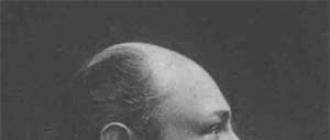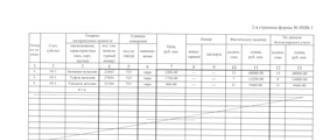2. But this is directly regulated by some law?
Yes, in fact it is regulated by law No. 416-FZ “On lotteries” dated December 28, 2013. In paragraph 1 of Article 6.1. “Restrictions on lotteries” it is written: “During the election campaign, referendum campaign, it is not allowed to hold lotteries in which winning prizes or participating in a prize draw depends on the results of voting, the results of elections, a referendum, or which are otherwise related to elections, a referendum.”
6. What laws generally regulate the election campaign process?
There are a lot of them. It's not only Federal Law of June 12, 2002 No. 67-FZ “On the basic guarantees of electoral rights and the right to participate in a referendum of citizens of the Russian Federation”, but also several dozen other legislative acts. Most The full list is posted on the website of the Central Election Commission of the Russian Federation.
7. What is the liability for violating the provision banning lotteries and competitions during elections?
According to Art. 5.49. Code of Administrative Offenses of the Russian Federation “Violation of the ban on holding lotteries and other risk-based games related to elections and referendums during the election campaign, referendum campaign” When winning prizes or participating in a prize draw depends on the results of voting, the results of elections, a referendum, or which are otherwise related to elections, a referendum, an administrative fine is imposed. For citizens - in the amount of two thousand to two thousand five hundred rubles; for officials - from three thousand to five thousand rubles; on legal entities- from thirty thousand to fifty thousand rubles. That is, quite a lenient punishment.
8. Are there any examples when such competitions were declared illegal?
One recent example is described in the material on the website Znak.com. September 10, 2017 on a single voting day in the city of Verkhnyaya Pyshma Sverdlovsk region passed Festival "Ural Gems". During the festival, 15 apartments, 130 cars, and more than 700 thousand other gifts were raffled off. In fact, it resembled a lottery, although formally the drawing of gifts was not related to the elections and was not considered a lottery. The purpose of the festival was to increase turnout at polling stations.
In the search system for court cases, we did not find information about whether this administrative case was considered, but we found material about the continuation of this story in the Kommersant publication. It said that “the Verkhnyaya Pyshma police denied information about the initiation of a case. “An administrative investigation is currently underway. As a rule, it lasts for 30 days, but its duration can be extended. The decision to initiate a case has not been made,” Marina Shnyreva, chief of staff of the Verkhnepyshminsky Ministry of Internal Affairs of Russia, told Kommersant.
Nafik Famiev, who curated the festival, doubted the prospects of the administrative case. “Some policeman is checking something. What kind of offenses are there? It is enough to discover the law, and all its problems will be resolved. There was no lottery, no risky games. No one bought tickets, no one lost. The major will sort it out,” he told Kommersant.”
9. Are there specific court decisions in other cases?
Of course they exist! Based on the analysis of court decisions under Art. 5.49 of the Code of Administrative Offenses, most often the media are found guilty if they published materials promising cash prizes to the reader who guesses the result of the elections ().
In most other cases, when persons responsible for conducting elections organized competitions and actions such as “take a selfie at the elections”, such cases were terminated for lack of an administrative offense or the applicants - representatives law enforcement agencies- the application was denied.
10. Is it even possible to invalidate the election results if lotteries and competitions were held during the elections?
If the lottery was held in favor of a particular candidate, then such actions should be qualified as bribery of voters with all the ensuing consequences, and both for this candidate, and for the election results in general.
In deciding the validity or invalidity of elections, the determining factors will be the massive involvement of voters in this lottery, the scale of violations committed and their impact on the results of the expression of the will of voters. If the participation of a candidate in organizing such a lottery is proven, then the election of this candidate may be declared invalid.
More details about this, as well as about the history of the appearance of the provision banning lotteries during the election campaign, can be read in the article by Dr. legal sciences A.V. Postnikova "
12:50 — REGNUM In the Nevyansky urban district of the Sverdlovsk region, a rush of voters was observed at several polling stations in the morning hours. Local residents report that queues formed at some stations even before they opened, the correspondent reports.
Alexey Bannikov ©
Thus, at one of the polling stations in the Nevyansk urban district, 16 people lined up before the start of voting; at another, four voters arrived before the opening. According to the observer, high activity may be associated with the Ural Gems festival, which takes place on September 10 in 20 cities of the Sverdlovsk region. Within its framework, a free lottery is held and citizens at polling stations are given lottery tickets along with their ballots.
Mostly voters win small prizes: markers, pens, bags. On at the moment local media reports several cases big wins. So in Ayati the teacher high school won a car. Also, cars went to two voters in Nizhny Tagil, and another citizen, after voting, won an apartment, reports Nakanune.ru.
Head of the Election Commission of the Sverdlovsk Region Valery ChainikoV during the press approach, he suggested that the fairly high voter activity in the elections of governor and deputies of local governments, which take place in the region on a single voting day, may be due to “background” events that take place at polling stations, as well as “high civic responsibility » Sverdlovsk residents who came to the elections.
It should be noted that a number of experts believe that turnout at polling stations on a single voting day, which takes place on the second Sunday of September, is often adjusted by weather conditions. As a rule, at the beginning of the first autumn month the weather is quite favorable and some citizens prefer to go to the gardens or on vacation for the weekend, and as a result, do not participate in elections. At the moment, the weather in the Sverdlovsk region is cool and rainy.
Let us remind you that as of 12:00 (10:00 Moscow time) the voter turnout was 14.62%, while in the last direct election of the governor of the Sverdlovsk region it was 9.15%. At the same time, the current turnout remains at the level of 2016 (14.96%), despite the fact that a year ago the State Duma elections were held - the turnout for which is traditionally higher than for regional elections.
https://www.site/2017-08-15/kak_stat_nablyudatelem_na_vyborah_10_sentyabrya
How to become an observer at the September 10 elections

On September 10, a single voting day, elections will be held throughout Russia. In Sverdlovsk, gubernatorial elections and local council elections will be held in 49 municipalities. The only way for an ordinary citizen to control how legally the voting process will proceed is to become an observer. Traditionally, training for observers is carried out by the organization “Voice”; all parties rely on its training manuals in preparation. We tell you how to become an observer, what to learn and what to expect at the polling station.
Who is an observer?
An observer is a representative of a party or a registered candidate who is at the polling station throughout election day and monitors that the voting itself and the vote counting process take place legally. Any citizen of Russia who is over 18 years old can become an observer. He must be sent to the polling station by a party or a candidate, but he is not required to be a member of the party.
How to sign up?
The easiest way is to sign up through the Golos organization, which specializes in training observers and monitoring elections not only in Russia. The application can be left on the organization’s website or in a special questionnaire published by the coordinator of “Voice” in the Sverdlovsk region, Alexander Grezev. After this, you will be contacted and invited to training.
After studying, a site will be assigned to you based on your wishes and you will be invited to pick up your documents. This year, according to Grezev, “Golos” will train not observers, but PEC members with advisory voting rights - they have slightly more powers. Experienced observers who already know how the process works are usually sent to complex areas.
In addition, you can contact a party close to your ideology and ask to become an observer from it. Not all parties are ready to accept people “from the street”; often large parties already have their own pool of observers, but perhaps you will be lucky. One of the parties told the website that they are trying to assign an observer to the polling station at their place of residence, so that he himself can vote, and also to make it easier to get home, because the counting of votes can drag on past midnight.
How to prepare?
In both “The Voice” and in the games you will receive 1.5-2 hours of training on how to be an observer. The first training for observers has already taken place in Yekaterinburg; according to Alexander Grezev, there will be 7-8 more large trainings. You can also read the 248-page Short-Term Observer's Handbook. In the parties they say that they also teach according to the “Voice” manuals. Separately, you need to study the Electoral Code. You can read publications in the media about what violations there were in the last elections and whether there were any in your polling station, so that you can be prepared for something like this in advance.
You must remain at the polling station until the end of counting votes and filling out the protocol, otherwise everything was pointless. Be prepared that in extreme cases you will be delayed until the morning, so get a good night's sleep the night before.

What can an observer do?
An observer has the right to monitor all the actions of the employees of the election commission on which he works, monitor the counting of votes, drawing up a protocol with voting results, file complaints about all violations, receive a certified copy of the protocol, and also take photographs and videos, having previously informed about this PEC.
What is prohibited for an observer?
Observers are strictly prohibited from touching ballots, much less handing them out to voters. Under no circumstances should you help a voter vote, even if he very much asks for it. An observer cannot take part in the counting of votes or participate in the work of the commission. It is forbidden to campaign voters for any of the candidates, even if a pensioner tearfully asks you who she should tick off for - you cannot suggest. Violation of any of these points will be grounds for removal from the site.
At the same time, remember that removing you from the site without a court decision has been prohibited since last year; previously the commission could remove the observer own decision. A representative of the commission will probably go to the court with an application, which will consider the document immediately. So far this is not a very common phenomenon that almost no one has encountered in practice. As observers say, PECs know about the unspoken order of the head of the Central Election Commission, Ella Pamfilova, that it is better not to touch observers without reason.
How to behave on site?
Experienced observers advise that there should always be at least one independent observer on site. For example, if there are three of you, then you cannot all go to lunch or to the toilet together. According to observers, the most important principle— continuity, if the site was left for at least half an hour, then there is no need to monitor it further, because this time is enough to, for example, throw in ballots.
It is undesirable to conflict with members of the election commission, especially over minor violations that cannot affect the election results. Many experienced observers agree with the commission that they will not find fault with minor violations, but all important parts of the work, such as counting votes, will be carried out strictly according to the law, without speeding up the process, which members of PECs like to resort to. Observers advise that it is better not to argue with the commission, but to help them, especially if its members know the law less well.

“Golos” advises to address only the heads of the commission (chairman, deputy, secretary), preferably by first and patronymic, do not raise your voice, and be extremely polite. IN recent years PECs have already become accustomed to independent observers, but there are still cases where particularly persistent activists were removed from polling stations under any pretext. If the commission refuses to work with observers according to the law, then we need to start taking measures. It is better to express all complaints and comments in writing. Golos advises to be as persistent as possible, even if the chairman of the commission says that he is busy and does not pay attention to the violation you indicated. Moreover, if you see a gross violation of the law that is happening right in front of you, for example, you witnessed a stuffing, then you can physically prevent the offense.
In some regions, mass events and promotions will be held on the single voting day on September 10. In several regions, authorities focused on increasing turnout among young people by announcing turnout competitions between universities or pre-election relay races. Award centers will be opened in the Sverdlovsk region - the gift fund includes 15 apartments, 130 cars, 10 thousand items household appliances.
On September 10, governors will be elected in 16 regions, deputies of legislative assemblies in 6, city dumas in 11 regional centers. In Sevastopol, where the governor will be elected, universities will compete in the number of students who vote. As the election commission told Kommersant, each university will receive its own hashtag to participate in the competition. On voting day, competition participants must post a photo from their polling station with a hashtag on their personal VKontakte page no later than 20:00. When counting photographs, the attitude of the students who voted will be taken into account total number students who have active voting rights at the university.
The “I Decide 2017” campaign is being held by the Kaliningrad Regional Election Committee (the region’s governor is elected). Young people participating in the elections for the first time will receive gifts - a pen, headphones, as well as a coupon entitling them to participate in a drawing of 100 valuable gifts. In addition, the commission is holding a relay race #yaidunaelections. A stylized ballot is carried to all municipalities in the region, with the name of the city or town marked with a tick. As part of the relay in Kaliningrad, on September 4, the #yaidunaelections holiday was held in the central square.
In Perm (gubernatorial campaign), concerts by DJ Smash and Oleg Gazmanov will be held on election day. Information is also being circulated on social networks that residents aged 18 to 35 will be able to receive flyers for free admission to cinemas at polling stations. Tickets will be issued by cinemas of the Kinomax and Cinema Park chains.
The concert of rapper L`One will take place on September 10 in Omsk (city council elections), it was organized by the Public Chamber of the region. Free invitation tickets to the concert will be available at polling stations.
In the Sverdlovsk region, where the governor will be elected, on September 10, festive events will be held as part of the Ural Gems festival (organized by the Ural Chamber of Commerce and Industry). Award centers will open in 20 cities in the region (not including Yekaterinburg), where anyone can choose a certificate to receive a prize. The addresses of the centers coincide or are located near polling stations, and only residents associated with the polling station will be able to receive a gift. The gift fund includes 15 apartments, 130 cars, 10 thousand household appliances and 700 thousand various souvenirs. The organizers of the event note that the festival is in no way connected with the elections, does not support any of the candidates, and the presentation of gifts is not a lottery.
Lada X-Ray car draw on the day elections will take place in Petrozavodsk (a governor will be elected in Karelia). In parallel with the voting, a survey “Do you support the initiative to adopt a republican law on the status of the capital?” will be conducted in the city, its participants will receive a promotional code, and a winner will be selected from among its holders.
The Tomsk City Hall (a governor will be elected in the Tomsk region) will hold a “little Tomsk day” on September 10: children will be able to join the eco-patrol, visit the Divo Reserve, try their luck at fishing in the “Soda Lake,” and bake pancakes and pancakes.
Election commissions and authorities of other regions do not intend to hold mass rallies on voting day. “We felt that the game was not worth the candle,” a source at one of the regional headquarters of United Russia told Kommersant. According to him, “calculations have shown” that such events really “attract young people, but, firstly, there are not many of them, and secondly, among the same students on the first weekend academic year there will be more important things to do.” Kommersant’s interlocutor noted that in local elections in cities of up to 500 thousand people there is no global agenda like: “Your vote for the future of Russia,” so it is not easy to achieve mass voter participation. “And the risk of provocations and general emergency situations at such events is always quite high,” the party member concluded.
We're talking about a lottery: in each of the categories that a participant comes across, there are several prizes, but the fastest ones will have a wide choice.
(function(w, d, n, s, t) ( w[n] = w[n] || ; w[n].push(function() ( Ya.Direct.insertInto(144554, "yandex_ad_article_in", ( stat_id: 5, ad_format: "direct", font_size: 0.8, font_family: "tahoma", type: "vertical", limit: 1, title_font_size: 1, links_underline: false, site_bg_color: "FFFFFF", title_color: "000000", url_color: "000000", text_color: "000000", hover_color: "000000", sitelinks_color: "000000", no_sitelinks: false )); t = d.getElementsByTagName("script"); "script"); s.src = "//an.yandex.ru/system/context.js"; s.type = "text/javascript"; s.async = true; ); ))(window, document, "yandex_context_callbacks");
Today, Omsk residents who came to the polls are participating in a win-win lottery from the Union of Trade Organizations of the Omsk Region. As its president Boris Svatkov said, the action is dedicated to the 25th anniversary of unification, and the elections are only a convenient reason for the implementation of this idea.
– People come here by registration. It is convenient for us that everything is transparent both for us and for those who participate. Were different ideas regarding which sites to implement the promotion and how to make sure that one person does not have several coupons. As a result, on election day everything coincided,” said Boris Svatkov.
In total, about a million coupons have been prepared. There are two main prizes: one car will be received by a resident of Omsk, the other by a resident of the Omsk region. In addition, scooters, laptops, smartphones, TVs, coffee machines, action cameras, etc. will be raffled off.
The most common prize category is number 11. These are discount coupons retail outlets various profiles: pharmacies, jewelry stores, outerwear stores, etc. If, for example, you choose last option, the discount on a down jacket will be 1000 rubles.
In the first hours of the action, several voters who voted at the Avangard stadium were very lucky. So, two people “fell” into the third category: TVs, laptops and smartphones. There are 44 of them in the city, and another 53 in the region (although the choice there is somewhat different: a TV or a freezer).
In addition, two more lottery participants got an “eight”: these are headphones, an electric toothbrushes or a wireless speaker (387 for the city and 407 for the region, in the region there is a shaving trimmer instead of headphones).
The girl who came to the polls with her parents won the fourth category prize: a coffee machine, a freezer or an action camera. There will be 37 such prizes in the city. In the region, 16 laptops were prepared for the winners of this category.
– I didn’t expect to win. I thought everyone had 11th there,” the Omsk resident shared.
Citizens who received a “more valuable” prize are invited to the Prize Distribution Center - one Center is organized in each of the districts of Omsk. Thus, the winners who voted at the Avangard stadium were invited to the Galaxy. As Boris Svatkov said, how quickly you go for the prize matters.
– You can receive the gift today and tomorrow evening. It is advisable to go to the Distribution Center as quickly as possible, because this will give you a better chance of choosing from several options what you need. The choice has certain limits. It turns out that the one who voted in the morning was in the most advantageous position. And it’s not even about the gift – it’ll just be a good mood for the whole day. This is what we wanted - to create good mood, to please our consumers, because they are our most important partners,” summed up the organizer of the event.
















